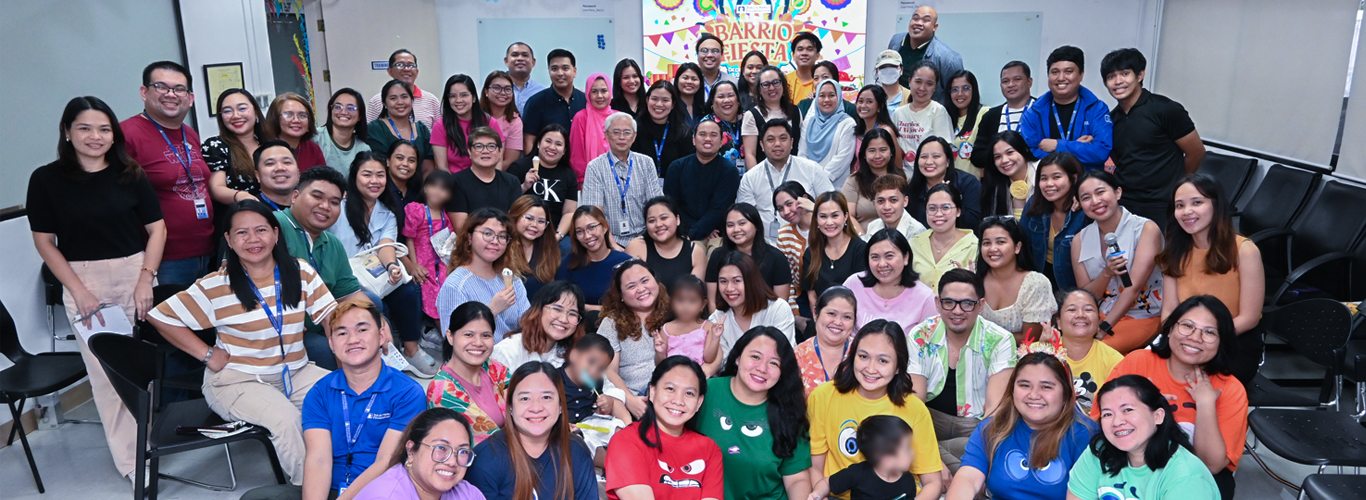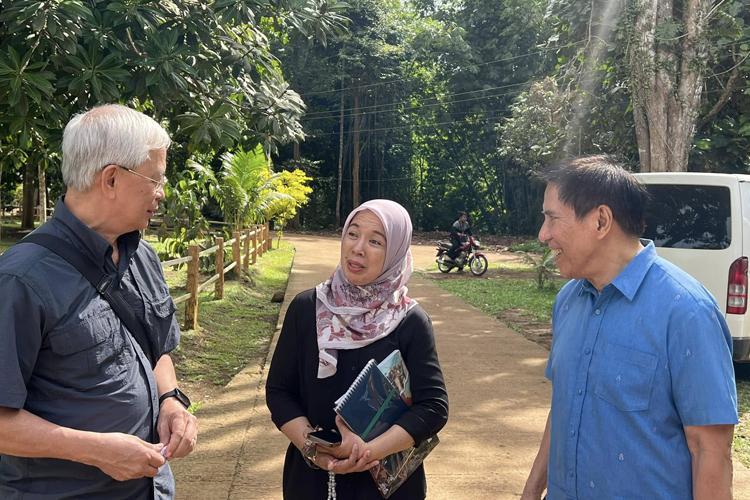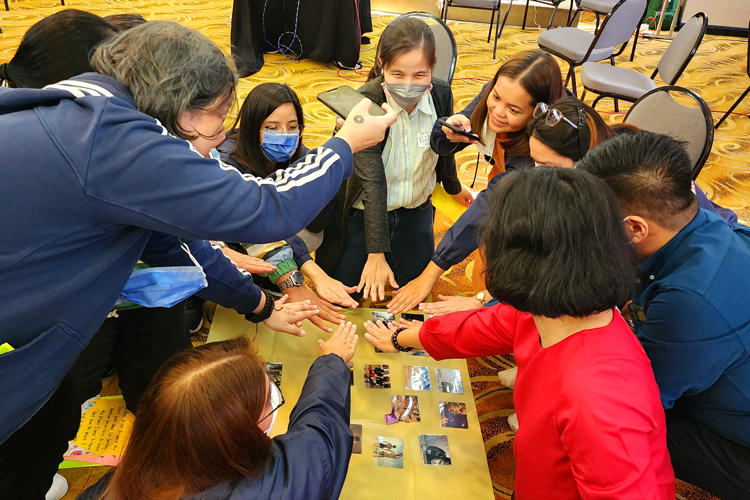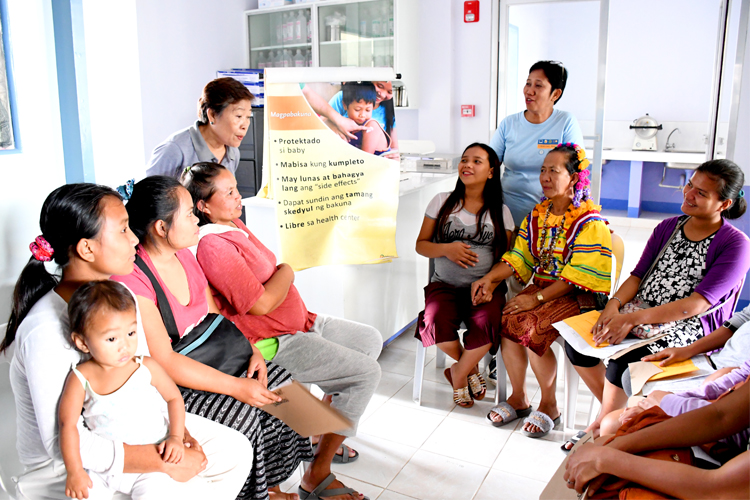
Who We Are
The Zuellig Family Foundation (ZFF) emerged as an influential force in improving public health by transforming healthcare in rural Filipino communities. ZFF aims to revolutionize local health leadership and reshape the course of healthcare in these areas. There was a critical turning point following the healthcare devolution in the Philippines in 1992. Many local chief executives (LCEs) were ill-equipped to manage local health systems, resulting in a lack of effective leadership and hindering the development of a healthcare system that catered to the needs of the underprivileged.
“The Foundation’s purpose is rooted in the Zuellig family’s long-standing business in healthcare.”
ZFF responded to the stark disparities highlighted in the research paper “Universal Health Care in the Philippines.” Authored by Paul Gideon Lasco, Bryan Albert Lim, and the late ZFF trustee Alberto Romualdez, Jr., the paper vividly portrays the divide existing in the country’s healthcare access. ZFF recognizes the urgent need for action and aims to be a catalyst for change. By equipping local leaders with the necessary tools and training, ZFF empowers them to implement systemic reforms. The objective is clear: to create healthcare systems that are attuned to the needs of the underprivileged, bridging the long-standing gap between the health statuses of the affluent minority and the struggling majority of Filipinos.
The Foundation is dedicated to the vision of the Zuellig family of being a catalyst for the achievement of better health outcomes for all Filipinos. In partnership with key stakeholders, we have always looked at our mission of training local chief executives and their teams in Health leadership and Governance as a way to acquire the knowledge and skills to help improve the health system and access to health services, especially for the vulnerable population.
Vision
A catalyst for the achievement of better health outcomes for all Filipinos.
Mission
Enable local health systems to achieve better health outcomes for all Filipinos through effective leadership and governance in partnership and cooperation with key stakeholders.
Our Goals
Health leadership
All trained local health leaders have improved Bridging Leadership competencies and are able to strengthen local health systems with resilient and sustainable community-driven arrangements for better health outcomes.
Building institutions
Partnerships with government and other stakeholders institutionalized for leadership and local health systems development.
Responsive policies
Lessons learned and evidence are disseminated to advocate responsive policies and programs in public health and governance.
Our History
2008
Catalyst
Zuellig Pharma Corporation formed the Pharmaceutical Health and Family Foundation in 1997, a corporate social responsibility unit of the pharmaceutical business. The initiative aimed to enhance the well-being of communities in the vicinity of Zuellig’s Interphil Laboratories Inc. in Canlubang, Laguna. It was later established as a corporate foundation.
The Zuellig Family Foundation (ZFF) is created, helping address issues on access to healthcare in rural municipalities. This strategic reorientation coincided with the repositioning of the foundation’s institutional identity. ZFF became separate and distinct from the Zuellig Group of Companies and its affiliates. It operates as a registered non-profit family foundation in the Philippines.
ZFF formulates its strategy, the Health Change Model (HCM), with interventions in Health Leadership and Governance for local chief executives using the Bridging Leadership (BL) framework. The model highlights the importance and significance of committed leadership and a responsive health system that will enable access to health services to achieve better health outcomes.
2009
ZFF begins implementation of HCM through the Community Health Partnership Program (CHPP) in 9 pilot municipalities. The mayor, municipal health officer, and community leader have similar leadership interventions, but each having defined deliverables.
2011
Expanding Reach
ZFF partners with the University of Makati (UMak) to enhance CHPP and roll-out to mayors and municipal health officers of eight of Makati City’s sister-municipalities. This one-year program had all the strategic elements of the two-year program: road mapping, close monitoring, mentoring, and coaching.
HCM is prototyped in 72 municipalities, including municipalities in the Autonomous Region in Muslim Mindanao (ARMM).
2012
ZFF Trustees approve the foundation’s ten-year strategy (2012-2021) that will expand its leadership programs through replication in more areas with partners.
ZFF collaborates with the United Nations Population Fund (UNFPA) to implement a provincial and municipal program with a primary focus on enhancing the leadership and governance capacities of nine UNFPA partner provinces. The objective is to cultivate leadership champions for reproductive health and family planning. This transformative program extends from 2012 to 2018.
ZFF starts the implementation of a three-year program to improve maternal health outcomes of pregnant women in geographically isolated and disadvantaged areas in Samar Island through the support of MSD for Mothers, with the program running until 2015.
2013
Synergize
The Department of Health (DOH) forges a partnership with ZFF for the nationwide rollout of the Health Leadership and Governance Program (HLGP). The partnership affirms the significance of the Foundation’s HCM and the HLGP program, and training technology is transferred to regional academic partners (APs) for mainstreaming. The HLGP program reaches 685 municipalities and 21 cities.
ZFF supports the response for Typhoon Yolanda-affected areas, coordinating partnership efforts with UNFPA and MSD to expand its interventions in affected municipalities in Samar and Eastern Samar. ZFF also works with Center for Agriculture and Rural Development Mutually Reinforcing Institutions (CARD-MRI) and Center for Community Transformation (CCT) to provide a six-month response and recovery support program for pregnant women in these municipalities, through the support of the US-Philippines Society.
2014
Grow
ZFF begins implementation of the three-year cooperative agreement with USAID on HLGP in its partner areas, and the three-year cooperation agreement with the United Nations Children’s Fund (UNICEF) for the programs on mainstreaming HLGP in UNICEF partner local government units (LGUs).
ZFF also works with UNICEF and its partners to implement resilient health systems planning in Yolanda-affected areas.
2017
ZFF enters into the second phase of HLGP implementation with DOH, working with its DOH Centers for Health Development (CHDs) in three cities, eventually reaching 685 municipalities and 21 cities.
ZFF expands its municipal model to improve outcomes during the First 1,000 Days of Life (F1KD) through a three-year partnership with Kristian Gerhard Jebsen Foundation (KGJF). The project is piloted in two municipalities.
ZFF starts its next phase of a three-year cooperative agreement with USAID for the institutionalization of the HLGP.
ZFF also enters a two-year partnership with the Commission on Population (POPCOM) to enhance POPCOM’s capacity on leadership and governance.
2019
ZFF develops the third iteration of its provincial program to model province-wide interventions for Universal Health Care (UHC) and implements scale-up activities focusing on Nutrition beginning 2019.
UNICEF partners with ZFF to develop a provincial model of nutrition governance in three provinces.
Nutrition International (NI) partners with ZFF to prototype a city leadership program for nutrition.
The United Nations Population Fund (UNFPA) also partners with ZFF to implement the Youth Leadership and Governance Program in ten municipalities to develop models of youth governance that will contribute to reduction of adolescent pregnancies.
2020
Pandemic Resilience
ZFF formulates a comprehensive framework for LGU COVID-19 Pandemic Response through a review and assessment of existing programs and interventions amid the prevailing realities. In response to the identified needs, the foundation realigns its structure and promptly devises a program aimed at strengthening capacities and fostering a more resilient primary healthcare system.
ZFF also launches The Challenge Initiative (TCI) in 2020. TCI is a five-year global platform, co-funded and co-managed with the William H. Gates Sr. Institute for Population and Reproductive Health (based at Johns Hopkins Bloomberg School of Public Health), which aims to reduce adolescent pregnancies by infusing positive health-seeking behavior and revolutionizing access to family planning services.
ZFF renews its agreement with POPCOM for another two years to support the implementation of Philippine Population Development Plan.
ZFF enters a second phase of agreement with KGJF to expand models of province-wide nutrition governance programs in two provinces. The program eventually expanded to cover three more provinces.
2021
ZFF continues its support for pandemic response of its partner LGUs through provision of equipment and commodities in partnership with Philippine Disaster Resilience Foundation (PDRF)’s Kaagapay Program.
ZFF receives accreditation for ISO 29993:2017 – Learning services outside formal education and ISO 29994:2021 – Education and learning services – distance learning. ZFF is the first organization in the Philippines to get ISO 29994:2021, and the first in the country to have both certifications.
2022
Scaling Up
ZFF starts a new ten-year strategy (2022-2031) to scale up and mainstream its programs in three focus areas: local health systems, nutrition (focusing on F1KD), and adolescent and youth sexual and reproductive health (AYSRH), forging strategic partnerships to expand reach and scale.
Building on the learnings of the HLGP, ZFF continues to strengthen capacities of DOH CHDs through its Bayang Malusog Leadership and Governance Program (BMLGP) to accelerate implementation of UHC. ZFF assisted five CHDs covering 18 provinces and one city in Region 1 (Ilocos), Region 2 (Cagayan Valley), Cordillera Administrative Region, Region 4A (CALABARZON), and Region 8 (Eastern Visayas).
In partnership with UNFPA, ZFF launches the Expanded Youth Leadership and Governance Program (EYLGP) as part of the Joint Program on Accelerating the Reduction of Adolescent Pregnancy in Samar and Southern Leyte.
2023
ZFF is working with ten academic partners with over 155 faculty members trained.
ZFF launches the Provincial Nutrition Governance Program (PNGP) and the Family Stunting Reduction (FaStR) Program under its flagship Pook Malusog program on nutrition. Northern Samar pilots FaStR in two municipalities.
ZFF also launches the Roberto R. Romulo (RRR) Fellowship for Public Health Leadership and Governance, which aims to produce a cadre of public health champions who will institute policy and program reforms to respond to national and local health challenges.
2024
ZFF now supports additional eight provinces, totaling 26 provinces, one city, and 33 municipalities in implementing UHC. All, except one, ZFF-supported sites reach 100% accreditation of primary care facilities.
ZFF launches the Nutrition Leadership and Equity Acceleration Program (NutriLEAP) with the League of Provinces of the Philippines, covering four provinces. Its nutrition assistance program in Basilan expands to five more municipalities with high stunting rates. ZFF’s health and nutrition information system, the Pook Malusog Dashboard, is piloted in Basilan and Siargao Islands, Surigao del Norte, providing local governments with real-time child and maternal health data.
Five cities—Cagayan de Oro, Dipolog, Puerto Princesa, Baguio, and San Jose—graduate from TCI for showing self-reliance in managing youth health programs.
2025
Aklan, Davao de Oro, Dinagat Islands, and Kalinga graduate as the first cohort of the RRR Fellowship.
ZFF also celebrates another wave of cities reaching self-reliance in AYSRH governance. Iligan, Naga, Santiago, Biñan, Mandaue, Manila, Iloilo, and Las Piñas graduate from TCI.

Meet the Team
Our Leadership
The board overseeing the foundation comprises an esteemed and varied group of Trustees.
MEET OUR LEADERS

Careers
Looking to make an impact on the health outcomes of Filipinos?
Addressing health concerns begins by assembling a group of dedicated individuals, fostering an inclusive environment that enables them to flourish while creating a significant change.
JOIN US TODAY

FREQUENTLY ASKED QUESTIONS
Have a question?
Looking for answers to frequently asked questions? We've compiled a comprehensive list of inquiries to provide you with the insights you need.
READ MORE